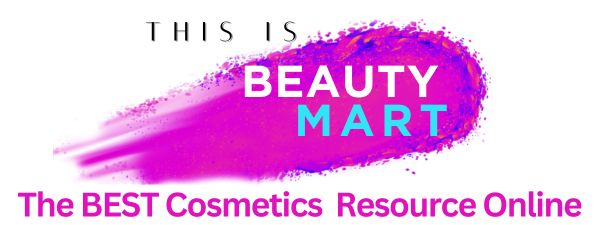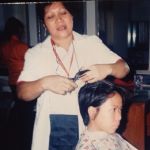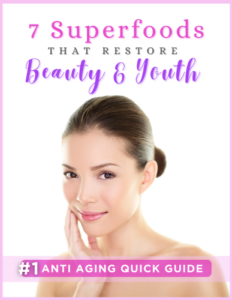Have you ever found yourself in the shower, reaching for the shampoo bottle only to find it’s empty? Did you know using body wash as a hair cleanser might not be your best move? In this blog, we’ll delve into why this common substitute could potentially harm your hair and scalp.
So stick around if you value your lustrous locks!
Key Takeaways
- Using body wash as a substitute for shampoo can potentially harm your hair and scalp.
- Body wash is not formulated to effectively cleanse the hair like shampoo does, and it may disrupt the pH balance of the scalp.
- Using body wash on your hair can lead to dryness, dandruff, potential hair loss, and irritation.
- It’s important to use products specifically designed for your hair type to maintain its cleanliness and health.
Table of Contents
Can You Use Body Wash as Shampoo? 5 Differences
Body wash and shampoo have distinct differences in their formulations and intended purposes, making body wash unsuitable for use as a substitute for shampoo when it comes to effectively cleansing your hair.
Differences between body wash and shampoo
The differences between body wash and shampoo can be crucial for maintaining your hair and skin health. Let’s look at the following table to better understand these differences.
| Body Wash | Shampoo |
|---|---|
| Body wash is formulated for less harsh cleaning and may not effectively cleanse the hair. | Shampoo is designed specifically to clean the hair on the head, removing dirt, oil, and product build-up. |
| Body washes generally have a higher pH than shampoos, which can disrupt the pH balance of the scalp. | Shampoos are formulated with a pH level that matches the natural pH of the scalp, helping to maintain balance and prevent damage. |
| Using body wash as a shampoo can lead to potential damage, dryness, and dandruff. | Shampoo helps to moisturize the hair and scalp, preventing dryness and dandruff. |
| Some people may experience hair loss if they use body wash on their hair. | Shampoo is formulated to keep the hair healthy and reduce hair loss. |
| Body wash is not recommended for use as a substitute for shampoo. | Shampoo is designed to be used on the hair and should not be replaced with body wash. |
It’s clear that body wash and shampoo are not interchangeable and using them incorrectly could potentially harm your hair.
Potential effects of using body wash on hair
Using body wash as a substitute for shampoo can have potential effects on your hair. Body wash is formulated for less harsh cleaning and may not effectively cleanse the hair like shampoo does.
This can disrupt the pH balance of your scalp, leading to possible damage, dryness, and even dandruff.
Body washes generally have a higher pH than shampoos, which can be detrimental to the health of your hair.
It’s important to use products specifically designed for your hair to maintain its cleanliness and health.
Challenges of using body wash as shampoo
Using body wash as a substitute for shampoo poses several challenges:
- Ineffective cleansing: Body wash is not specifically formulated to clean the hair, so it may not effectively remove dirt, oil, and product build-up from your strands.
- pH imbalance: Body washes generally have a higher pH than shampoos. Using body wash on your hair can disrupt the natural pH balance of your scalp, leading to potential damage, dryness, and even dandruff.
- Lack of nourishment: Shampoos are designed with ingredients that help nourish and strengthen hair. Body wash may not provide the same level of hydration and care that your hair needs.
- Potential scalp irritation: The ingredients in body wash might be harsher on the sensitive skin of your scalp, causing irritation or itchiness.
- Residue build-up: Body wash formulas may leave behind residue on your hair, making it feel heavy and greasy. This can also reduce the effectiveness of styling products you apply later.
- Unsuitable fragrance: While body washes often have pleasant scents for the body, they might not leave your hair smelling as fresh and fragrant as dedicated shampoos do.
Is Body Wash Suitable for Your Hair?
Body wash may not be suitable for your hair because of the difference in pH levels and the specific needs of your hair.
pH levels and their impact on hair
The pH levels of our hair play a significant role in its health and appearance. The scalp has a natural pH level of around 5.5, which is slightly acidic. This acidity helps to keep the hair cuticles closed, making the strands smooth and shiny.
When we use body wash, which typically has a higher pH level than our scalp, it can disrupt this delicate balance. The alkaline nature of body wash can cause the hair cuticles to open up, leading to dryness, frizz, and even breakage.
Additionally, an imbalanced pH can also affect the scalp’s ability to produce sebum, resulting in either too much oiliness or excessive dryness.
Therefore, it’s essential to choose products specifically formulated for hair care that help maintain the optimal pH balance for healthy and beautiful hair.
The importance of specific hair products
Choosing the right hair products is crucial for maintaining healthy and beautiful hair. Specific hair products, such as shampoos and conditioners, are formulated with ingredients that cater to different hair types and concerns.
Using a product specifically designed for your hair can help address issues like dryness, frizz, or damage more effectively. These products often contain essential nutrients and oils that nourish the scalp and promote healthier hair growth.
So, it’s important to invest in specific hair products that target your individual needs to achieve the best results for your locks.
3 Risks and Side Effects of Using Body Wash on Hair
Using body wash on your hair can lead to dryness and damage, scalp irritation and sensitivity, as well as a build-up of residue.
Dryness and damage to hair
Using body wash on your hair can lead to dryness and damage. Body washes are formulated for the skin, not for the scalp or hair.
They often have a higher pH level than shampoos, which can strip away natural oils from your hair, leaving it dry and prone to breakage.
Additionally, the ingredients in body wash may not provide the necessary nourishment that your hair needs to stay healthy. This can result in frizz, split ends, and overall dull-looking hair.
It’s important to use products specifically designed for hair cleansing to maintain its moisture balance and prevent damage.
Scalp irritation and sensitivity
Using body wash on your hair can lead to scalp irritation and sensitivity. Body washes are formulated for the skin on your body, which is different from the scalp and hair.
The ingredients in body wash may be too harsh for the delicate skin on your head, causing redness, itchiness, and discomfort.
Additionally, certain fragrances and chemicals present in body washes can further aggravate any existing sensitivity or irritation.
It’s important to use products specifically designed for hair care to maintain a healthy scalp and prevent these issues.
Build-up of residue
Body wash is not designed to be used on the hair, and using it as a substitute for shampoo can lead to build-up of residue.
Unlike shampoos that are formulated specifically to cleanse the hair, body washes may leave behind a film on the scalp and strands.
This residue can make the hair feel greasy, weighed down, and look dull.
Additionally, using body wash on your hair can cause product build-up over time, resulting in clogged follicles and potential scalp issues.
It is important to use products that are specifically designed for hair cleansing to avoid this build-up and maintain optimal hair health.
Alternatives to Using Body Wash on Hair
Explore different shampoo options for your specific hair type, discover natural remedies for hair cleansing, and learn about effective hair care routines – all to ensure healthy and clean locks!
Shampoo options for different hair types
Choosing the right shampoo for your specific hair type is essential for maintaining healthy and beautiful locks. Whether you have oily, dry, or damaged hair, there are shampoo options available to address your unique needs.
For oily hair, look for shampoos that are specifically formulated to control oil production and leave your strands feeling fresh and clean. If you have dry hair, opt for moisturizing shampoos that will nourish and hydrate your locks.
Those with damaged hair can benefit from repairing shampoos that help strengthen and restore their strands. Remember to read the labels carefully and choose a shampoo that aligns with your hair’s needs for best results.
Natural remedies for hair cleansing
- Incorporating apple cider vinegar into your hair care routine can help remove build – up and residue. Simply mix one part apple cider vinegar with two parts water and use it as a final rinse after shampooing.
- Aloe vera gel can be applied directly to the scalp to soothe irritation and moisturize the hair. It also has cleansing properties that can remove excess oil and dirt.
- Baking soda can act as a natural clarifying agent for the hair. Mix one tablespoon of baking soda with one cup of warm water, apply it to your hair and scalp, then rinse thoroughly.
- Using coconut oil as a pre – shampoo treatment can help condition and nourish the hair. Apply it generously from roots to ends, leave it on for at least 30 minutes, then shampoo as usual.
- Replacing traditional shampoo with a homemade herbal infusion can be a gentler option for cleansing the hair. Boil herbs like rosemary, chamomile, or lavender in water, let it cool, strain the liquid, and use it as a natural shampoo alternative.
Remember that these natural remedies may not work for everyone, so it’s important to find what works best for your own hair type and needs.
Experimenting with different methods can help you discover which ones provide optimal results for maintaining healthy and clean hair.
Hair care routines and practices
Establishing a regular hair care routine is essential for maintaining healthy locks. Here are some key practices to incorporate into your routine:
- Shampooing: Choose a shampoo that is suitable for your hair type and lather it gently into your scalp. Rinse thoroughly to remove any product residue.
- Conditioning: Apply conditioner to the lengths and ends of your hair, avoiding the scalp. Leave it on for a few minutes before rinsing thoroughly.
- Deep conditioning treatments: Treat your hair to a deep conditioning treatment once or twice a week to keep it moisturized and nourished.
- Brushing and detangling: Use a wide-toothed comb or brush with soft bristles to gently detangle your hair, starting from the ends and working your way up.
- Heat protection: Before using heat styling tools such as blow dryers or flat irons, apply a heat protectant spray or serum to shield your hair from damage.
- Minimize heat styling: Limit the use of heat styling tools as much as possible to prevent excessive damage and breakage.
- Regular trims: Trim off split ends every 6-8 weeks to maintain the health and appearance of your hair.
- Avoid harsh treatments: Minimize the use of chemical treatments such as perms, relaxers, or bleaching, as they can weaken and damage your hair over time.
- Protect from environmental factors: Shield your hair from the sun’s harmful UV rays by wearing hats or using products with UV protection when spending extended time outdoors.
- Eat a balanced diet: Nourish your hair from within by consuming foods rich in vitamins, minerals, and proteins that promote healthy hair growth.
Conclusion
In conclusion, using body wash as a substitute for shampoo is not recommended. Body wash is formulated for less harsh cleaning and may disrupt the pH balance of the scalp, leading to potential damage and dryness.
It’s important to prioritize hair health by using products specifically designed for cleansing and maintaining hair hygiene.
FAQs
1. Can you wash your hair with body wash?
Yes, you can use body wash as a substitute for shampoo to clean your hair but it may not be as effective in removing oil and residue.
2. Is it Safe to Use Charcoal Body Wash on Your Hair for its Benefits?
Discover the power of charcoal body wash and learn whether it is safe to use on your hair. Using charcoal body wash on your hair may offer benefits such as detoxification and removal of impurities, but it is crucial to consider potential side effects like dryness and damage. Consult a hair care professional to determine if charcoal body wash is suitable for your specific hair type and concerns.
3. What is the difference between body wash and shampoo?
Shampoo is specifically designed for cleaning hair and maintaining its health, while body wash is designed for overall body hygiene including skin cleansing.
4. Is there any risk of damage if I use soap instead of shampoo on my hair?
Regularly using soap or body wash instead of shampoo might not thoroughly remove oil from your hair and could potentially cause dryness over time.
5. Could shower products like body cleansers work as alternatives to traditional shampoos?
While some people do experiment with using different kinds of cleansers on their hair, most experts recommend sticking to products specifically made for haircare routines.
6. If I run out of shampoo, can I clean my head with other personal care items like soap or body hygiene products?
In a pinch, you can use other personal care items like soap or Body Wash to clean your hair. However, these are not meant as long-term replacements for necessary Hair Care Products such as shampoos.



